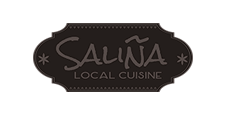
The Language
Dutch and the local language of Papiamento are the official languages of Aruba, but most Arubans speak a minimum of four languages including English and Spanish.
Aruba’s native language of Papiamento embodies the friendliness for which the local population is known, with the language marked with an inclusive and open nature as represented in its unique sayings and mannerisms.
Unique to the ABC islands of Aruba, Bonaire and Curacao, Papiamento evolved from a rudimentary pidgin language, utilized for the purposes of communication among peoples with different native languages, into the more complex language it is today. At its base, the language is an Afro-Portuguese Creole, which, over the years, has grown in syntax and lexicon with increased borrowings from Dutch, English and Spanish, but still possessing its own unique rhythm and meanings.
Evidence of its first widespread use can be observed in official documents from Curacao in the early 18th century. Through the middle of the 19th century, Papiamento was the language of choice for written materials, including Roman Catholic hymnals and schoolbooks. The first Papiamento-language newspaper soon followed with the apt moniker of “Civilisado” (The Civilizer) in 1871. Papiamento would have continued to be used as the language of instruction until Dutch subsidies came with the stipulation that lessons be taught solely in Dutch. Papiamento’s re-introduction into the educational system did not happen again until recent times.
Although in use as the native language for 300 years, Papiamento was only declared Aruba’s official language, alongside Dutch, as of March 19, 2003.
Copyright© Gold Coast Aruba 2025. All right reserved.










